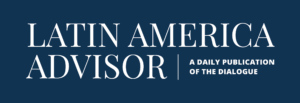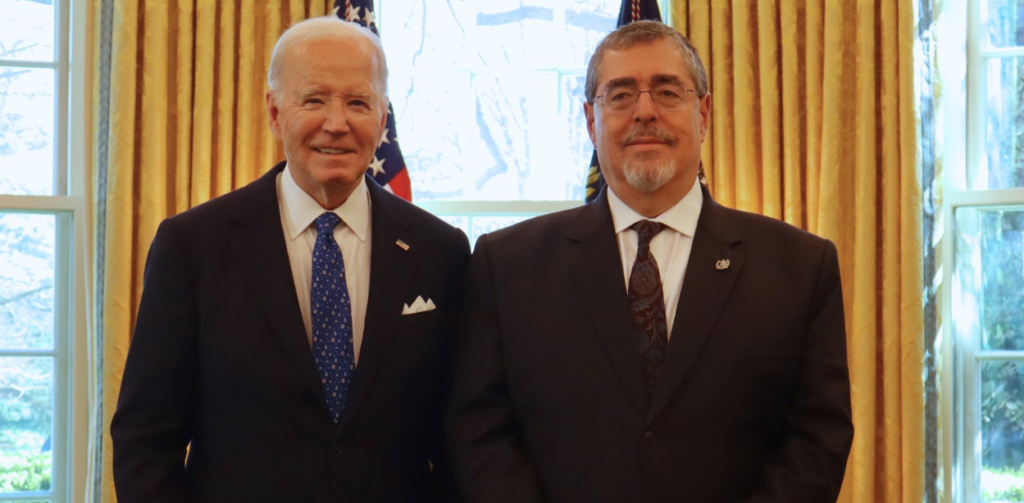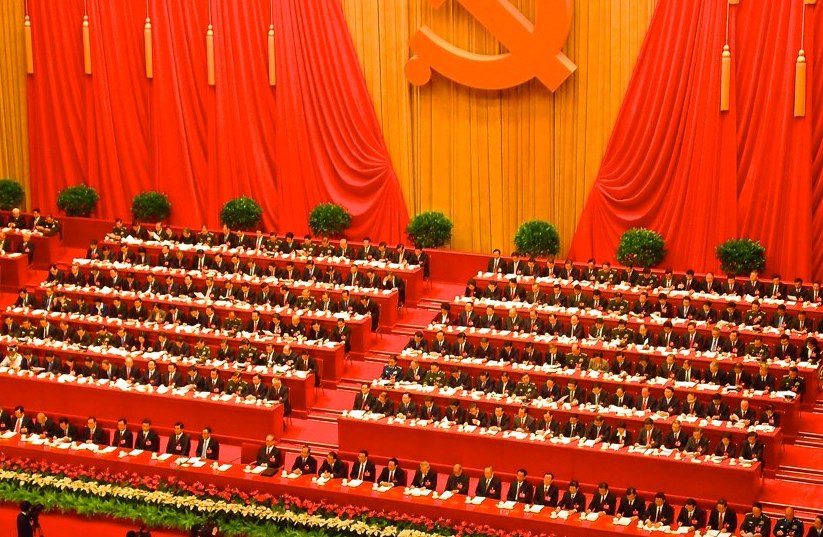This post is also available in: English Português
Guatemalan President Bernardo Arévalo visited the White House on March 25 to discuss migration, good governance and other issues with U.S. President Joe Biden and Vice President Kamala Harris. At the same time, Harris announced that the United States will provide the Central American nation $170 million for development, economic, health and security assistance. How important are the United States and Guatemala to each other, and what’s at stake in their bilateral relationship? What are the most important joint initiatives that the two countries are pursuing? How critical is Arévalo’s support to U.S. goals of stemming illegal immigration?
Regina Bateson, assistant professor in the political science department at the University of Colorado Boulder: “The U.S.-Guatemala relationship has long been characterized by coercion, rather than collaboration. As the dominant actor in the hemisphere, the United States has repeatedly intervened in Guatemala’s domestic affairs, often with disastrous results. Recently, however, the United States played a major role in pressuring Guatemala to uphold democracy and recognize the results of its 2023 presidential election. Arévalo’s latest meetings with Biden and Harris raise the hope that going forward, the United States may continue to use its leverage as a force for good in Guatemala—namely, by supporting Arévalo’s efforts to combat corruption and promote economic development (two issues that are closely linked, as Arévalo rightly pointed out during his visit to Washington). It is a mistake to view the U.S.-Guatemala relationship solely through the lens of migration. However, if the United States offers sustained, long-term support for Arévalo’s policy agenda, current and subsequent U.S. administrations have a historic opportunity to improve Guatemala’s institutions and the wellbeing of its people, while simultaneously discouraging emigration. Data from the 2023 AmericasBarometer survey—fielded by the Latin American Public Opinion Project at Vanderbilt University, with major support from USAID–shows that concrete, immediate harms are among the top causes of migration from Guatemala. People who have experienced food insecurity, crime victimization, gender and racial discrimination or natural disasters are more likely to say they want to leave Guatemala in search of a better life abroad. To meaningfully address these problems, Arévalo will need a long tenure in office, greater political influence within Guatemala (particularly in the Congress), and reliable, consistent support from the United States.”
Nicolás Mariscal, member of the Advisor board and chairman of Grupo Marhnos in Mexico City: “The United States-Guatemala relationship is very important, since the United States has the economic capacity to provide needed investments to the Central American country, and Guatemala could help to stop northward illegal migration—especially of Guatemalans. Currently, there is a U.S.-Guatemala High-Level Economic Dialogue. The Biden administration wants to tackle the root causes of migration, which are basically economic ones. Among them is food insecurity, since numerous Guatemalan peasants lack sufficient crop yields for their own sustenance. Nevertheless, there are other pressing issues that this initiative is tackling: infrastructure, transparency and health are among them. The central issue is to stem the flow of mass migration reaching the southern border of the United States. And it is a fundamental issue as it is at the forefront of the current U.S. presidential election. Historic numbers of migrants arriving illegally in the United States are giving a sense of uncontrolled borders. On how well the United States handles this issue will depend, to an important degree, on the outcome in November. Even so, whoever wins, it will be in both the interests of the United States and Guatemala to continue with programs that provide much needed aid to millions of Guatemalans.”
Donald J. Planty, president of Planty & Associates and former U.S. ambassador to Guatemala: “It was encouraging to see the Biden administration invite Guatemalan President Arévalo to the White House so early in his tenure. Arévalo’s presidency represents a unique opportunity for Guatemala to take a positive turn generally, internally and externally, in the region spearheaded by closer cooperation with the United States. The $170 million U.S. aid package is a welcome development but should be expanded to cover some additional areas. Guatemala is a critical country for the United States in Central America, but its centrality seems to have escaped the last two U.S. administrations. The country’s geostrategic location–it’s the largest economy in the sub-regionby far–should make Guatemala a key U.S. partner, in deeds rather than just rhetoric. When thinking beyond migration, the United States needs to set aside its preoccupation with marginal programs and concentrate on helping Arévalo move Guatemala toward becoming a rule-of-law country again. Arévalo understands the U.S. role in the region and Guatemala’s shortcomings better than anyone since President Arzú delivered the peace accords in 1996. We should invest heavily in the security sector, not piecemeal but rather in transformative terms–to help reform and stabilize the national police (the formula for such an effort was contained in the peace accords but is now forgotten), train and reform the public prosecutor’s office, modernize and improve the court system, do additional work on prison reform and assist with improving the functionality of Congress. Such policies, in cooperation with the Arévalo government (and with our international friends such as the European Union), would set Guatemala apart from the negative and antidemocratic developments that we see in the rest of Central America and give democracy supporters hope for the future. This is a giant opportunity for the United States that should not be missed.”
Ana María Méndez-Dardón, director for Central America at the Washington Office on Latin America: “With a new chapter in the U.S.-Guatemala relationship, we can expect a renewed focus on good governance, trade and the economy, security and migration. The trade relationship between the two countries is significant, as the United States accounts for nearly 35 percent of Guatemala’s trade. The United States has also played a key diplomatic role in promoting the rule of law over the years and recently in protecting Guatemala’s democracy in the aftermath of its presidential election. USAID is also backing significant projects that support civil society, which have had a great impact. The Biden-Harris administration’s priority toward Guatemala has been to advance the root causes strategy to address migration and the Vice President-led Central America Forward initiative. As one of the main drivers of migration from the country has been the lack of economic opportunities, the recent High-Level Economic Dialogue—to discuss the ways in which the United States can support Guatemala to expand economic growth, increase investment, promote food security and foster a more resilient energy sector—represents a critical opportunity to strengthen economic ties. The United States has also sought partnerships to address historic levels of migration throughout the region, and Arévalo is likely to be a solid partner. He has committed to increase legal pathways for Guatemalan migrants through the Safe Mobility Offices, increased border security and more information sharing with the United States (and Mexico) to address human smuggling and trafficking. For its part, the United States has committed to the expansion of safe, orderly and lawful pathways for Guatemalan migrants, including additional temporary work visas. Arévalo’s administration should have the capacity to implement the long-term measures set out in the root causes strategy that are fundamental and complementary to addressing the humanitarian crisis of migration.”
 The Latin America Advisor features Q&A from leaders in politics, economics, and finance every business day. It is available to members of the Dialogue’s Corporate Program and others by subscription.
The Latin America Advisor features Q&A from leaders in politics, economics, and finance every business day. It is available to members of the Dialogue’s Corporate Program and others by subscription.



